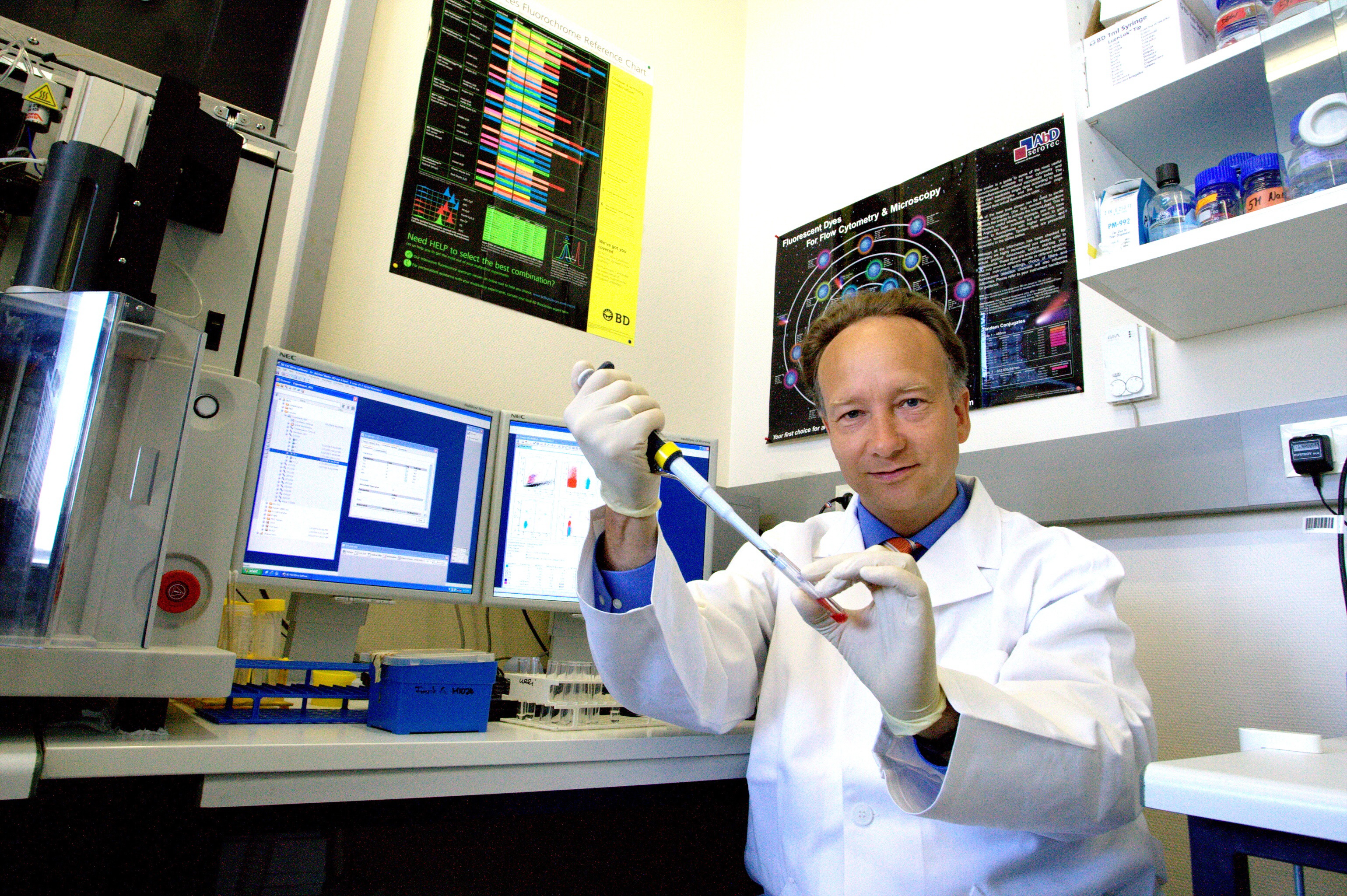
Moving towards immunotherapy application
Biologists in Konstanz are testing the prerequisites for a new immunotherapy against prostate cancer in the framework of the EU project PRECIOUS.
Immunotherapy is seen as one of the most promising approaches to combatting cancer. In 2013, Science magazine chose the method which harnesses the body’s own immune system to counteract cancer cells as the winning scientific Breakthrough of the Year. The European Commission is promoting an 8.3 million euro Europe-wide research project in which the University of Konstanz and the Biotechnology Institute Thurgau (BITg) are participating at the University of Konstanz with the aim of introducing applications for new nanomedical approaches in immunotherapy. In the joint research project PRECIOUS (scaling-up immunomodulating nanomedicines for multimodal precision cancer immunotherapy), ten European institutions are testing the clinical potential of biologically degradable particles, known as microspheres, for immunotherapy against cancer. The research group of Prof. Marcus Groettrup, Professor of Immunology at the University of Konstanz, is receiving 850,000 euros for their work testing the prerequisites of an immunotherapy against prostate cancer on the basis of microspheres. After this there are plans to carry out a clinical trial in a Phase 1 Study in cooperation with Senior Consultant Dr Niko Zantl of the Urology Clinic at the Hospital of Konstanz (Klinikum Konstanz).
Since the body’s own immune system is often unable to differentiate between cancer cells and healthy body cells, it fights them ineffectively. The aim of immunotherapy is to enhance immuno-stimulating cells with antigens which help the immune system to recognise cancer cells and then target the tumour with an appropriate immune response. In this way the immune system is stimulated to recognise and attack cancer cells. As Marcus Groettrup explains: “Our laboratory has been carrying out pioneering work in this field for 17 years. We were one of the first groups worldwide to pursue the idea of using biologically degradable microspheres to activate T cells and initiate an immune response in the body to cancers cells.” These microspheres consist of lactic acid and glycolic acid and can be used as vehicles for antigens. They dissolve in aqueous tissues and release the cancer antigens in the body.
In their preliminary work based on laboratory models Marcus Groettrup and his colleague Dr Valerie Herrmann were able to prove the effectiveness of the method against prostate cancer cells. In the PRECIOUS project the task of the immunologists in Konstanz is to prepare the next step along the path from laboratory models to pharmaceutical application. In a preclinical study in cooperation with the pharmaceutical company Evonik Nutrition & Care in Darmstadt the initial aim is to show that the effectiveness of the method conforms with the guidelines for pharmaceutical Good Manufacturing Practice, GMP. Once the tests have satisfied the GMP conditions, a Phase 1 Study can proceed in tandem with the Klinikum Konstanz. This clinical study will test and evaluate the effectiveness and safety of the immune therapy with a small number of patients. Phase 1 Studies represent the first test stage in a series of studies to assess the quality and safety of a medication before it is authorised to enter the market. Marcus Groettrup expresses his gratitude saying: “Although we and others have already been investigating microsphere technology for almost two decades, there has never been a clinical test in the field of immunotherapy against cancer so far. Now the European Commission is funding our five-year EU-wide project with 8.3 million euros for this purpose. Funding for such preclinical phases is rare. For this reason we feel very honoured that our PRECIOUS project has been found worthy for this support.”
Articles on the subject:
Mueller, M., Reichardt, W., Koerner, J. and Groettrup, M. (2012) Coencapsulation of tumor lysate and CpG-ODN in PLGA-microspheres enables successful immunotherapy of prostate carcinoma in TRAMP mice. J. Con. Rel., 162: 159-166.
Herrmann, V. L., Wieland, D. E., Legler, D. F., Wittmann, V., and Groettrup, M. (2016) The STEAP1262-270 peptide encapsulated into PLGA microspheres elicits strong cytotoxic T cell immunity in HLA-A*0201 transgenic mice – a new approach to immunotherapy against prostate carcinoma. Prostate 76: 456-68.
